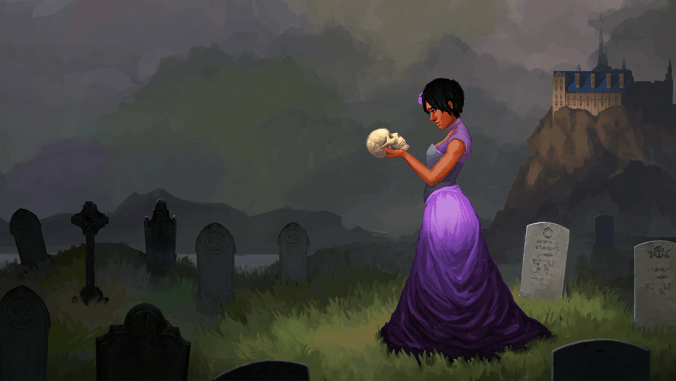Hamlet’s fatalism is a perfect fit for Groundhog Day-style shenanigans


Every Friday, A.V. Club staffers kick off our weekly open thread for the discussion of gaming plans and recent gaming glories, but of course, the real action is down in the comments, where we invite you to answer our eternal question: What Are You Playing This Weekend?
I love time-loop stories. (I love time-loop stories.) (Okay, I’ll stop.) But I’ve enjoyed enough of them over the years to have developed at least one serious pet peeve with the form: the frequently encountered idea that there needs to be some sort of outside-imposed limit or danger bedeviling the protagonists in order to make a story about an otherwise immortal character have “stakes.” This isn’t always awful—Russian Doll leverages the steady shrinking of Nadia’s world in service of both its storytelling, and some truly effective outright horror—but I certainly don’t need to see “Oh no, the injuries carried over between loops, sort of!” as a story beat ever again. (Looking at you, the otherwise delightful Happy Death Day.) Shows and films that impose these limitations on themselves are often the ones that fail to grasp the central point of their own stories: that the loop itself, repeating eternally, is the scariest threat of all. Or to quote a game we’ll be talking about quite a bit in this space when 1999 Week rolls around: “Time is not your enemy. Forever is.”
Elsinore gets that, which is just part of what makes its ludicrous-on-paper premise work. Released this week by Golden Glitch, the game places you in the shoes of doomed Shakespeare heroine Ophelia, tasked—by a character whose resemblance to the Happy Mask Salesman from time-loop classic The Legend Of Zelda: Majora’s Mask can’t be a coincidence—with not only preventing her own Bard-mandated death, but with potentially saving her poor idiot ex, Hamlet, too.
Weirdly, this isn’t even the first game (or, at least, game-book) that’s given Ophelia the chance to save herself from her mostly ignoble and watery grave—Ryan North’s wonderful choose-your-own-path book To Be Or Not To Be devotes many of its pages to allowing literature’s most patient girlfriend to save herself, showing off her swashbuckling and scientific skills in the process. (The path where she decides to say screw it to all this royal drama and just make her name by inventing indoor heating 300 years early is a special highlight.) Elisnore’s Ophelia isn’t quite so accomplished—an early goal is simply to figure out how to keep herself from getting murdered by a lone assailant in Act IV, Scene 7, because nobody’s buying the whole “accidentally drowned after falling from a tree” thing—but she is a lot smarter than everyone else in the castle, and that focus on information and intelligence is one of the game’s biggest draws.
Want to save your pop, Polonius, from getting himself stabbed behind a curtain? Well, why not use your loop-gleaned knowledge to warn him in advance? Hoping to manipulate the castle guards? Blackmail them with information about something they’re going to do. Subverting enemies, seducing kings, and (not to mix tragedies) helping Ham screw his courage to the sticking place a lot earlier than the last possible moment before Fortinbras shows up to take control of everything are all possible with the right word in the right ear, and it’s this mutability of the universe that makes Elsinore such a fascinating sandbox to play around in, even if you’re not especially attached to the original work it’s playing with. It’s not easy, after all, to turn Hamlet into even more of a bloodbath than it originally was, but with the wrong grudges stoked and encouraged, it’s not impossible to pull it off.
And yet, the loop continues—and as the game reminds you repeatedly, with the specter of other characters who went full-on mad by being caught in it before you, will continue—rendering everything you do ultimately meaningless unless you can drive the situation toward an ultimate choice. Elsinore isn’t perfect—it can be painfully clunky to move around, and testing theories and experimenting with different outcomes often forces you to fast-forward through days of slowly-passing in-game time. But as an exploration of destiny, choice, and fatalism—hallmarks both of Shakespeare, and of the time loop genre as a whole—it’s a pretty definitive case of “To be.”